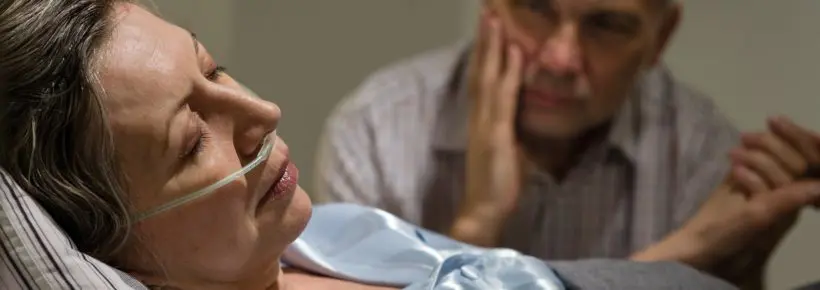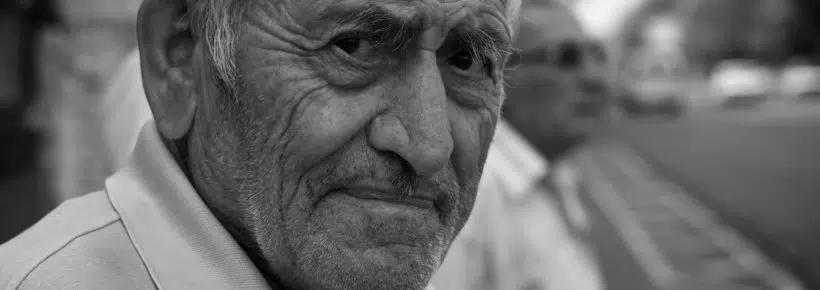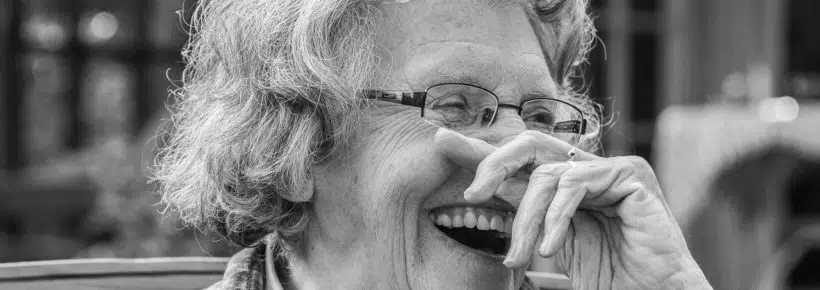“[T]he value of life can today undergo a kind of “eclipse”, even though conscience does not cease to point to it as a sacred and inviolable value, as is evident in the tendency to disguise certain crimes against life in its early or final stages by using innocuous medical terms which distract attention from the fact that what is involved is the right to life of an actual human person.” – Evangelium Vitae, Pope Saint John Paul II
Physician-assisted suicide is an important topic in the debates regarding life and death. Many people who have been diagnosed with a terminal illness want to be “put out of their misery.” But as is always the case in ethical issues regarding human life, there are key notions and distinctions which must be understood and there is in the end only one acceptable decision: life. This article will outline the ethical and legal principles which provide this answer.
What is physician-assisted suicide for terminally ill patients?

There is no “death with dignity” – the phrase often used to describe physician-assisted suicide- because the very act of taking life assumes one’s life is not worth living. It is a denial of one’s inherent value as a human being.
Those who have taken their own lives are beyond our judgement, but we may hope in God’s mercy, trusting that He will recognize whatever mental distress may have contributed to their actions. But the greatest dignity in dying is seen in those who accept suffering nobly and bear it courageously while trusting in God.
What is the difference between assisted and “normal” suicide?
In the essence of the individual’s act, there is no difference. in terms of the inclusion of others, it is different. Assisted suicide (regardless of the professional capacity of the assistant) is actually worse than normal suicide because it also implicates others, such as the physician, in killing the patient. The addition of an assistant into the picture does not absolve the patient of their culpability, only adds the guilt of the doctor who now acts as a killer. The physician, whose very occupation is to be a healer, commits a greater offense by killing in that he is especially committed to the preservation of life in all circumstances.
The practice of physician-assisted suicide also brings profound risks to society, as it is impossible to legally contain once allowed. Witness the slippery slope where we witness patients now euthanized without their consent in Belgium and the Netherlands. As the Maryland Catholic Conference explains:
The Church specifically opposes physician-assisted suicide because it seeks to legalize the intentional taking of human life; this deliberate activity violates the most basic tenet of our belief in the sacredness of life, and simultaneously poses many dangers to vulnerable populations.
A truly caring community devotes more attention and support to members facing the most vulnerable times in their lives; when the sick, elderly, and vulnerable are tempted to see their lives as less valuable, they most need the love and assistance of others to assure them of their worth.

01 Jan 1976: Mother Teresa Visits Patients At Kalighat Home For The Dying (Image by © JP Laffont/Sygma/CORBIS)
It is important to realize that the term ‘physician-assisted’ does not necessarily mean that the doctor is the one administering a lethal dose of medication, but he assists or facilitates the process of the patient overdosing by means such as providing the poison and means of implementation. These actions make him morally culpable.
What does the law say about assisted suicide?
In the United States, the laws regarding physician-assisted suicide vary among states. All states in the U.S. regard assisted suicide as a felony, but several states (such as Colorado, California, Montana, Oregon, Washington) allow for it if the one assisting is a licensed physician.
Regrettably, there are several countries which similarly allow physician-assisted suicide for terminally ill patients. Such countries include Belgium, Luxembourg, the Netherlands, Switzerland, Colombia, and Canada. This is positively reprehensible not just because it is murder, but also because, as mentioned above, the situation of euthanization has rapidly escaped controls and been extended to killing patients without consent. As early as 1990 in the Netherlands, nearly five thousand people were killed in one year by lethal doses of pain medication administered in this manner by their physicians!
A Children’s Hospital in Toronto has even gone so far as to push for the legalization of euthanizing children even without consent from the parents!
Woman’s Mother Euthanized Without Consent. Special thanks for video: Fatal Flaws, Euthanasia Prevention Coalition
What is the Church’s position?
In its treatment of suicide, the Catechism of the Catholic Church opens with the following:
Everyone is responsible for his life before God who has given it to him. It is God who remains the sovereign Master of life. We are obliged to accept life gratefully and preserve it for his honor and the salvation of our souls. We are stewards, not owners, of the life God has entrusted to us. It is not ours to dispose of. (CCC 2280)
In the case of terminally ill patients, this is no less applicable. It is a moral axiom that it is never permissible to intend an evil. To do so is to have already rejected God’s will, which is all good, even if suffering seems at the time to be unnecessary. For this reason, it is never permissible to take even one’s own life. The power over life and death does not reside in man, but only in God.
On the part of the doctor who might wish to prescribe a lethal dose to alleviate patient suffering, this act of “mercy killing” is still gravely immoral for many reasons. Even for those who are close to death, doctors must provide all ordinary means of care. True “palliative care,” in which there have been tremendous advances, is the answer. Treating the patient’s needs, in the manner of making her comfortable, is true mercy. There is nothing merciful about taking a God-given life. Turning to the indispensable Catechism, we read that “anyone who uses the power at his disposal in such a way that it leads others to do wrong becomes guilty of scandal and responsible for the evil that he has directly or indirectly encouraged” (CCC 2287). In the case of physician-assisted suicide, he is also guilty of the mortal sin of killing another human being.
There are several other subtopics of this issue on which the Church has also judged. It can happen that painkillers (considered ordinary means and morally licit) may decrease the expected lifespan of a patient. In these circumstances, the Church says that administering the painkillers “can be morally in conformity with human dignity if death is not willed as either an end or a means, but only foreseen and tolerated as inevitable” (CCC 2279).
While an overdose of painkillers is a common way for physicians to assist their terminally ill patients in killing themselves, that is not what the previous line was referencing. Doctors who intentionally place the possibility of an overdose of painkilling medication in the hands of their suicidal patients participate in the evil intent of suicide and are therefore culpable for it, should the patient accept the offer.
What should be done instead of assisted suicide?
All ordinary means of treating and comforting the terminally ill must be administered. This may include therapy or medication to combat suicidal wishes. The pain may be minimized with safe amounts of painkillers and caretakers may help with the humiliating aspects of such illnesses. This is all under the umbrella of proper palliative care.
Before a terminal diagnosis, the aim is to cure. When a cure is out of the question, the answer is not to abandon the patient, but to focus on easing symptoms, all the while assuring the patient’s value as a human being made in the image of God and the object of love with inherent value.
The Church has always affirmed that this is the only acceptable and human way to treat the terminally ill. The Catechism says:
“Even if death is thought imminent, the ordinary care owed to a sick person cannot be legitimately interrupted. The use of painkillers to alleviate the sufferings of the dying, even at the risk of shortening their days, can be morally in conformity with human dignity if death is not willed as either an end or a means, but only foreseen and tolerated as inevitable. Palliative care is a special form of disinterested charity. As such it should be encouraged” (CCC 2279).
To deny such care to the sick is to deny their worthiness of our love and care. This is never permissible.
One of the great joys that Christianity provides is the model of Christ for those who are suffering. He showed us that suffering unimaginable pain and humiliation can be done nobly and with dignity, even though He did not deserve any of the abuse He suffered.
The terminally ill have been given a cross to bear. They are called by Christ to take up that cross and follow him, suffering well! Christ could have put an end to His suffering with one word to the Father, for He had already redeemed Man, but He chose to endure so as to give us all an example of how to live well even until the very painful end. Those who imitate Christ’s heroic suffering will be greatly rewarded.
Conclusion
Taking part in physician-assisted suicide requires a shared evil intention. Whether one is speaking of the patient or the doctor, both must have the intent to bring about the death of the patient, or to make such a decision seem convenient and desirable. Intending evil is always wrong (see CCC 1753).
Those contemplating suicide, regardless of their prognosis, should be cared for and counseled. If a young, healthy person voices thoughts of suicide, the reaction is never to say that “maybe they’re right!” The solution is to address the medical problem, be it mental illness or terminal disease, by providing mental and physical relief to the patient.

Death of St. Joseph, Johann Friedrich Overbeck
We all must do our utmost to protect human life, especially physicians, whose very profession is to be the most knowledgeable in the field of protecting life. Ordinary means of caring for the sick and dying must always be given to them, and in the case of those who are contemplating suicide, this includes psychological counseling to the extent that it is possible.
We should encourage the sick and the dying to receive the Sacraments, grow in faith, hope, and love. They should be helped to realize that the suffering they have been presented with is not theirs to turn away. It is a gift from God. A challenge to complete their life as He did, suffering pain and humiliation that He did not deserve and could have stopped with a word. A terminal diagnosis does not mean that one’s life is over, rather, it is a challenge with a set timer. The way that one copes with such a challenge is of utmost importance, and can be either the greatest achievement, or the darkest tragedy of one’s life. There is immeasurable spiritual benefit in redemptive suffering, i.e. uniting one’s suffering with Christ’s, for the betterment of all existence.
Our culture is afraid of pain and obsessed with convenience and pleasure. We have lost sight of one of the crucial elements of a good life, namely a good death, and we must strive to gain it back. No story is complete without a good ending, and the end of all life stories is death. We must rebuild a Christian tradition of the ars moriendi, the art of dying.
Related Content
HLI staff writers bring you stories from the mission field and the latest information on life and family issues. All HLI articles are true to Catholic teaching.














The Catholic Church and other religious organizations falsely believe that they have the right to prescribe how terminally ill patients should act or be treated. Religion has been used as a tool of government for centuries. We are now in a post-religion era partly because both high and low ranking Church members, as in other religions, have been accused and convicted of physical child abuse, sex abuse of children and psychological damage inflicted particularly on women and children. We need to rely on science, not a corrupt myth, and value kindness to others above other virtues.
So it strikes me as odd that the church thinks God would have stopped the crucifixion of Jesus, if Jesus had just asked. This was God’s plan, he would not have stopped it. God does not intend people to live in unbearable pain. God does not intend for people to live in a body that dies around them as their mind is still sharp and intact. God says “Who so ever believeth in me, shall not parish but have life everlasting”. He does not go on to say, “unless you kill yourself or have someone else kill you”. I think the catholic church should look more into what their clergy is doing and figure out that keeping people of the cloth forever alone in the flesh is what is causing the issue of actual “morally wrong” doing.
Yeah it might not be about suffering it just will be about losing your memory. And a lot of us don’t wanna waste away in a nursing home. So why doesn’t the church leave us alone.
And quit acting like they know the answer for every single person that exists on this planet.
When you have all the money in the world and a good reputation yeah they have a point there.
As far as the others, living in a system that place is profit over people well that’s another story. Speak to the insurance companies about that the health insurance companies.
Amen! I could not have said this in any better way. Thank you for such a wonderful catechetical and practical teaching regarding the topic of “physician-assisted suicide” which is now being called “aid in dying” or “end of life options” as the most recent proposed legislation reads. As most enlightened people realize, the reason for this change in terminology is verbal engineering designed to obfuscate and fool people who may be thinking that suicide has suddenly become a good thing to consider. Thank God for the sound and logical moral teachings of the Roman Catholic Church based on the teachings of Jesus Christ and His apostles for over 2,000 years! We must use these teachings as HLI has done to inform and educate others so they can help to fight the good fight against this type of convoluted thinking that promoters like “Compassion & Choices” (a misnomer) is pursuing everywhere these days. Compassion means “to suffer with someone”, not kill them! Even the Hippocratic Oath, which doctors formerly vowed, said: “Do no harm!” Doctors and all health care providers must continue to be healers instead of being transformed into becoming killers. All of us who call themselves Catholics and/or Christians must remember the 5th Commandment: “Thou shall not kill!” Even the State has always considered that anyone assisting another to commit suicide was guilty of a crime! We must do all that we can to help people who are suffering either mentally or physically and help them to see that, as Bishop Fulton J. Sheen once taught: “life is worth living!”